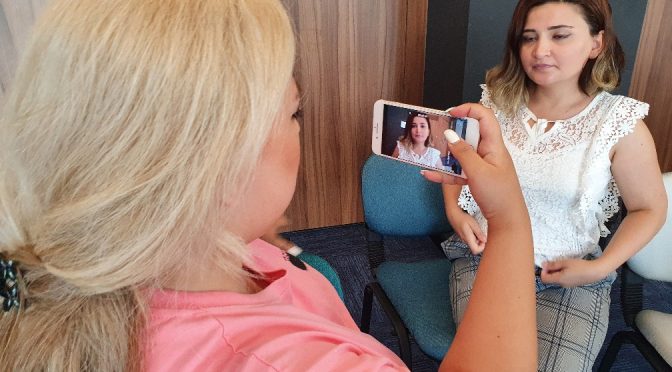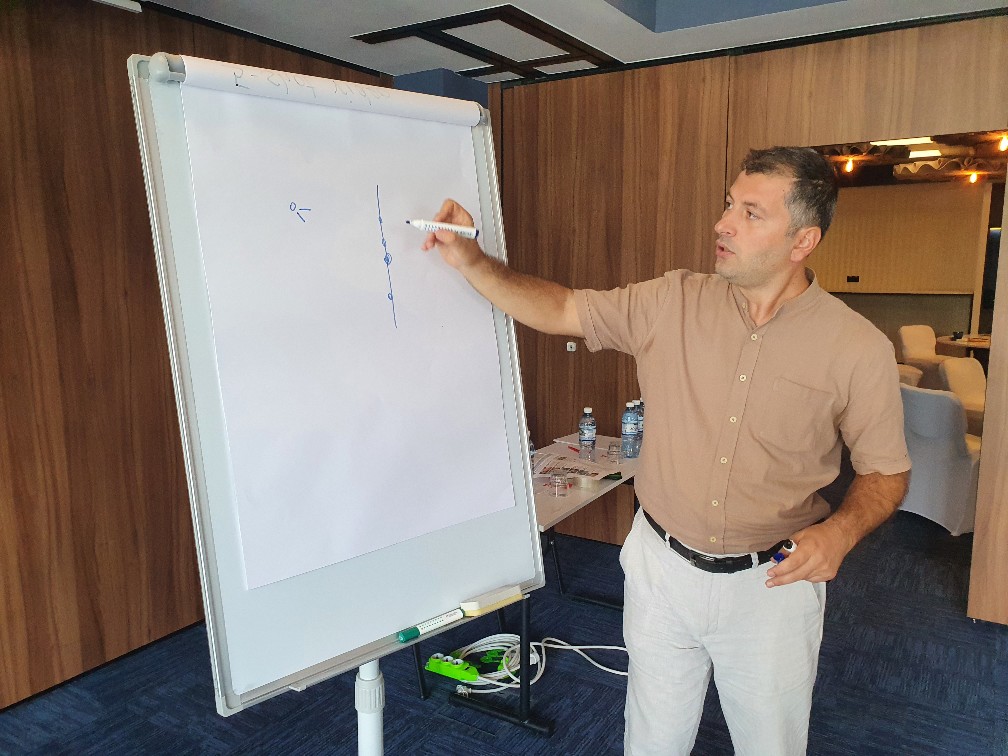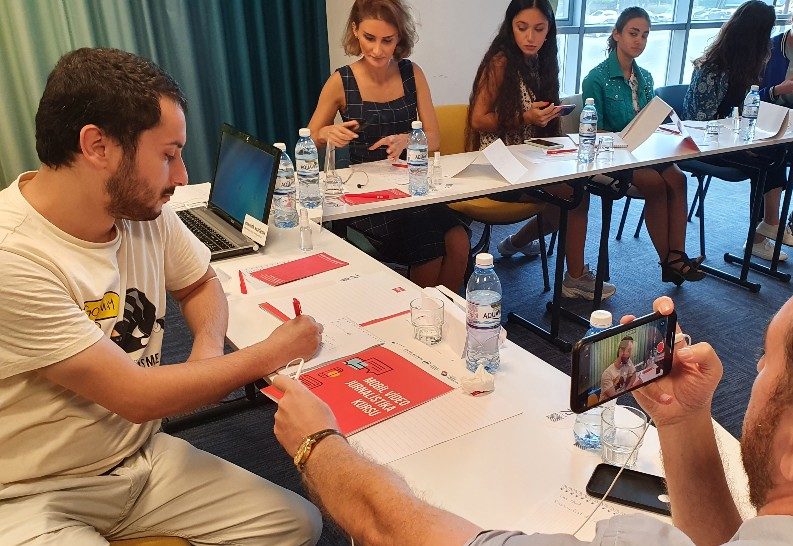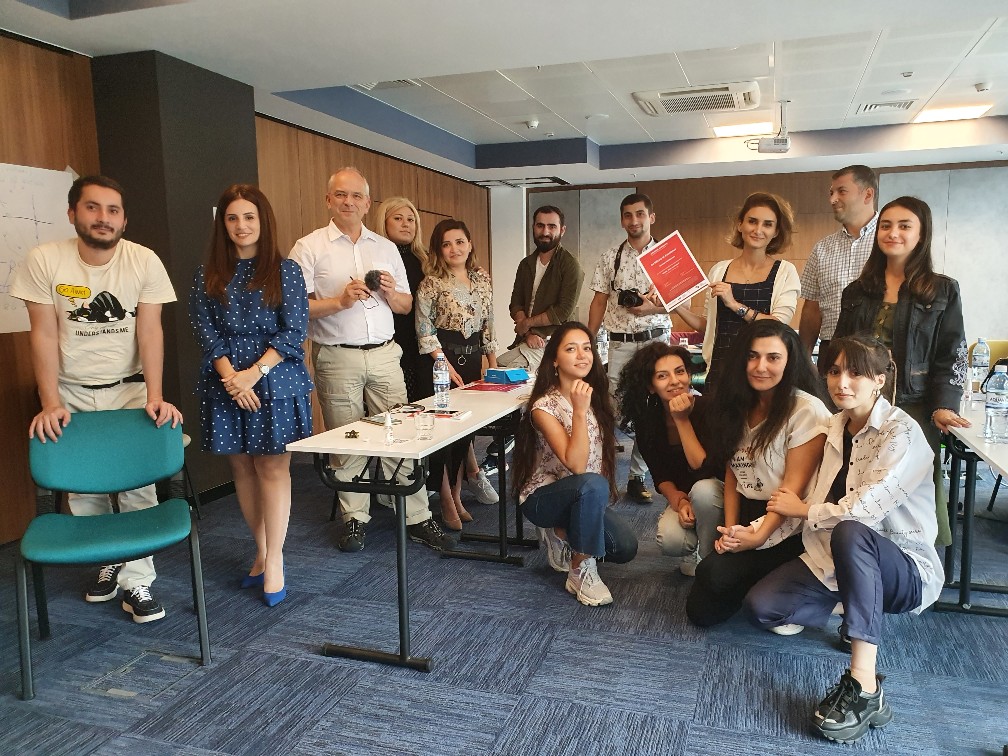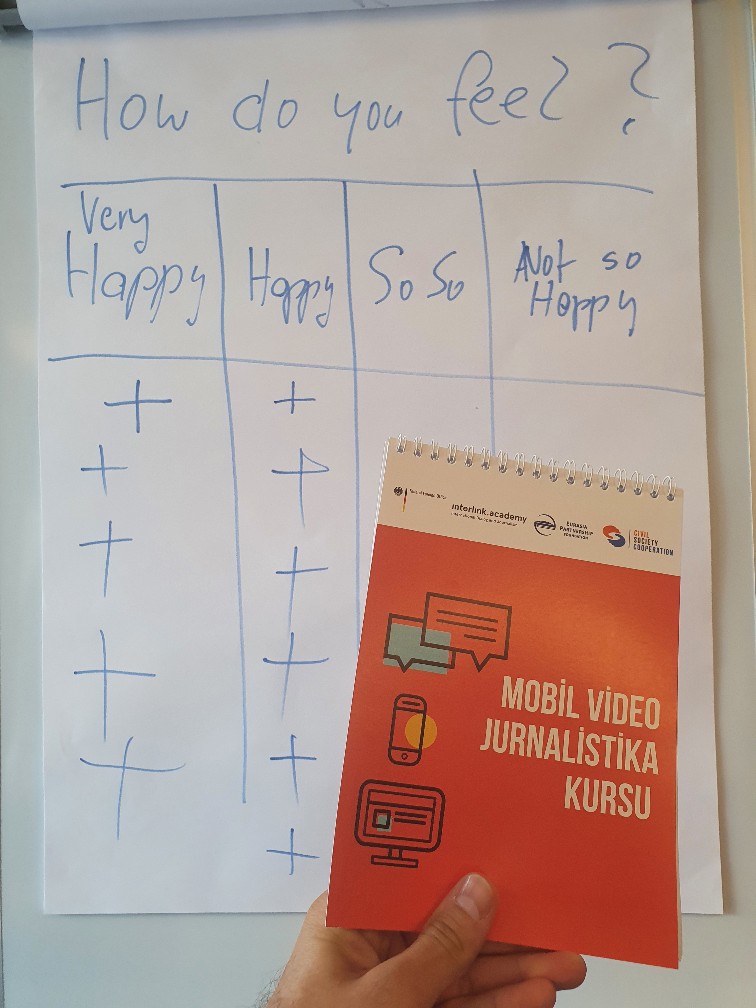Report on a training on #Oneshot video reporting for reporters from Azerbaijan in Baku. This report by one of the local trainers on the outcome, what they learned and what the participants think of this method and how happy they are with the course.
During the workshop participants learned how to produce news videos for the web with just a smartphone, and improved their command of interviewing, editing, reporting, filming and production. The methods applied in the workshop included lectures, group work and many practical exercises.
The workshop sessions were conducted by professional journalist and trainer Kai Rüsberg and experienced local trainer Emin Huseynzade. Most of the participants were working journalists (fully employed or freelance), while all of them had relevant work experience and/or education.
On the first day of the workshop, just after the introduction into the course program the trainer Kai Rüsberg asked participants to interview each other by mobile video. Once the video interviews were ready, they were monitored by the participants and the shortcomings were discussed. Based on these example videos, the basics of video production such as composition rules, line of action, journalistic standards, sound (microphone) and etc. were introduced by the trainers.
In the second half of the day #Oneshot video production technique which is produced with no (or hardly any) editing after shooting was taught by Kai Rüsberg. He explained that this production style has great benefits: as all pictures are filmed at the same time on the spot, manipulating the video by editing in false venues or reshuffling of procedures is not possible.
On the next day of the workshop, another video production technique was introduced and the participants practised shooting and editing according to the “5-shot” rule. Throughout the day developing a story and filming simple action videos with this technique were practised, and all produced videos were shown at the big screen TV set for the discussion of shortcomings.
Basics of editing of videos with non-linear editing (NLE) were taught on the third day of training. After introduction of software (VN Editor) the participants were asked to edit the “5-shot” examples videos which were shot beforehand as their homework. After monitoring and discussion of the edited videos the participants were given the next day’s task – to produce a “Oneshot” video out in town and asked to develop a theme and individual topic for the videos. On the same day, participants were trained in media ethics before being sent to the city to produce a real video report.
The participants spent the first half of the last day in the city centre for the shooting videos. Although they all did their job, some mistakes were made in the filming and that is why when returned to the training site monitoring and discussion of each individual video took place. At the end of training final discussion and feedback about the workshop were conducted by trainers, and professional advice was given to the participant for further use of the obtained skills in the future.
It should be noted that participants were asked for their feedback at the end of every training day and together with the organizers the trainers evaluated the workshop on a daily basis. Whenever participants were asked for their opinions and feedback toward daily training and the workshop in general, all of them expressed their gratitude for the organisation of such workshop. For instance, on the second day of the workshop, one of the participants – Rafig said to the local trainer that he is very happy to take part in such a workshop and improve his skills in this field. “I have already started to feel improvement”, he added to his feedback.
One of the female participant of the workshop participant Sakinakhanum expressed her sincere gratitude to the trainers and the organizers in the last day and said: “I am confident that the skills we have learned will be useful in our work and I am going to apply these techniques in my video reports”. Like the majority of the participants she wishes that such events will continue in the future and they can learn more in their speciality.
#Oneshot Video Reporting for Armenia

